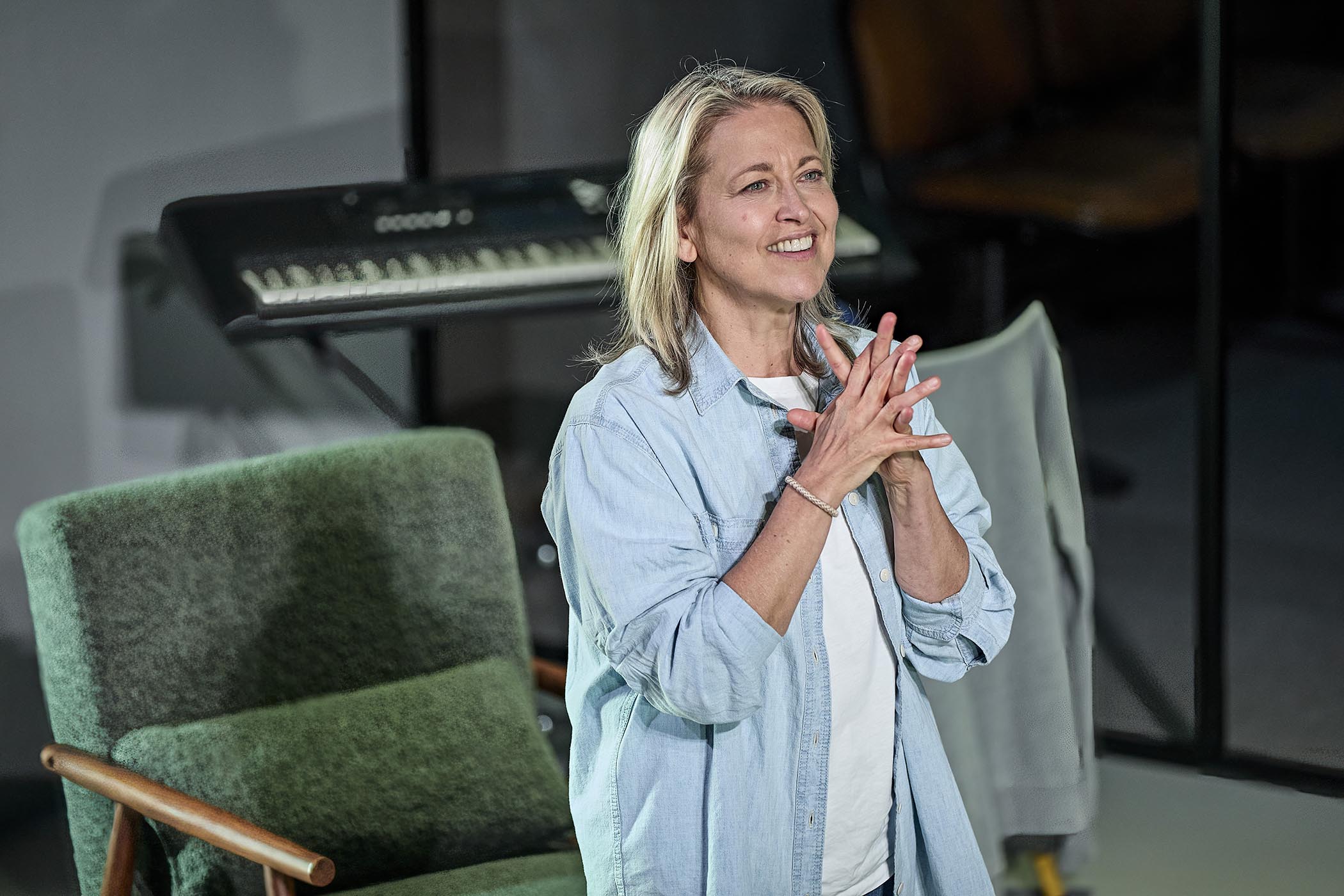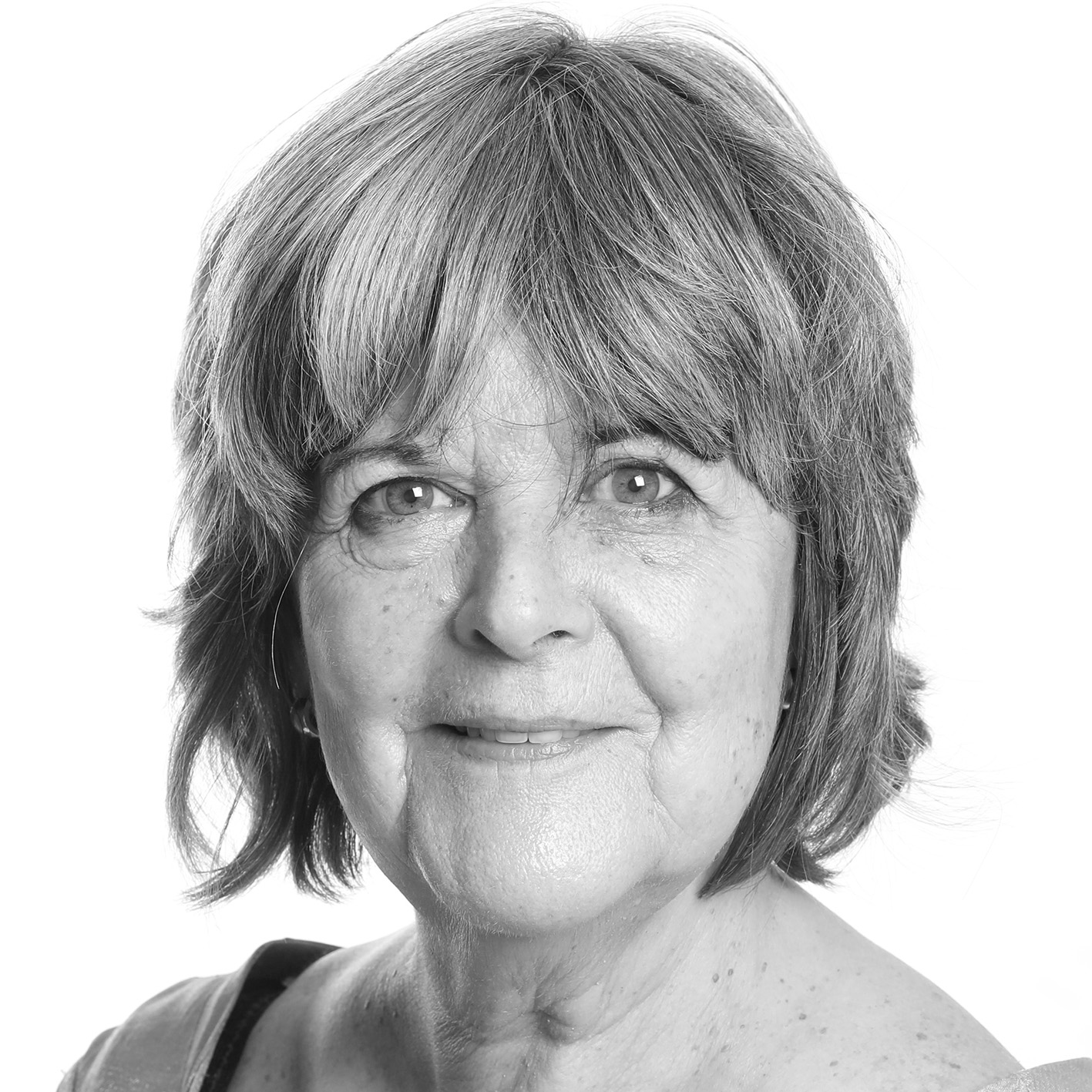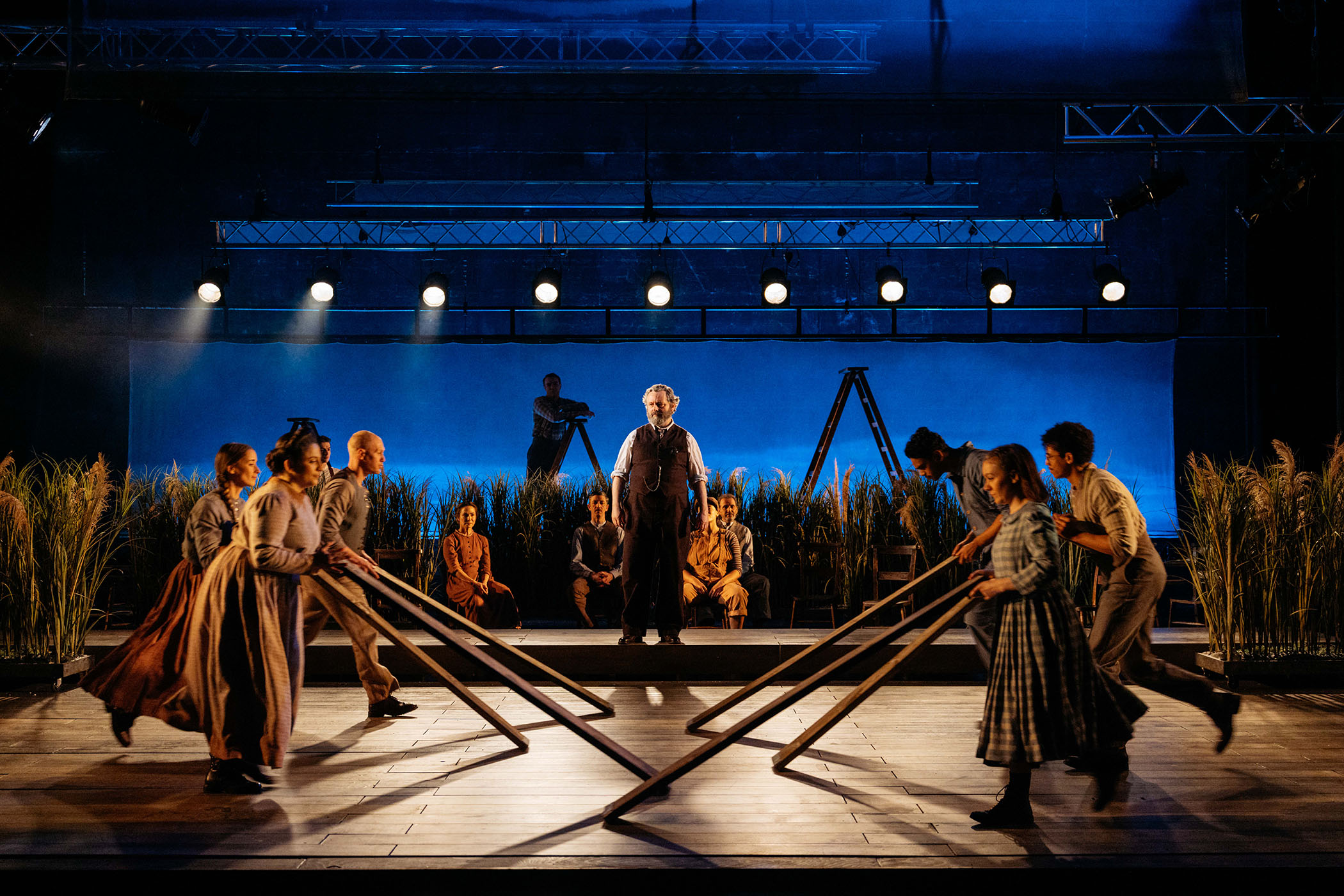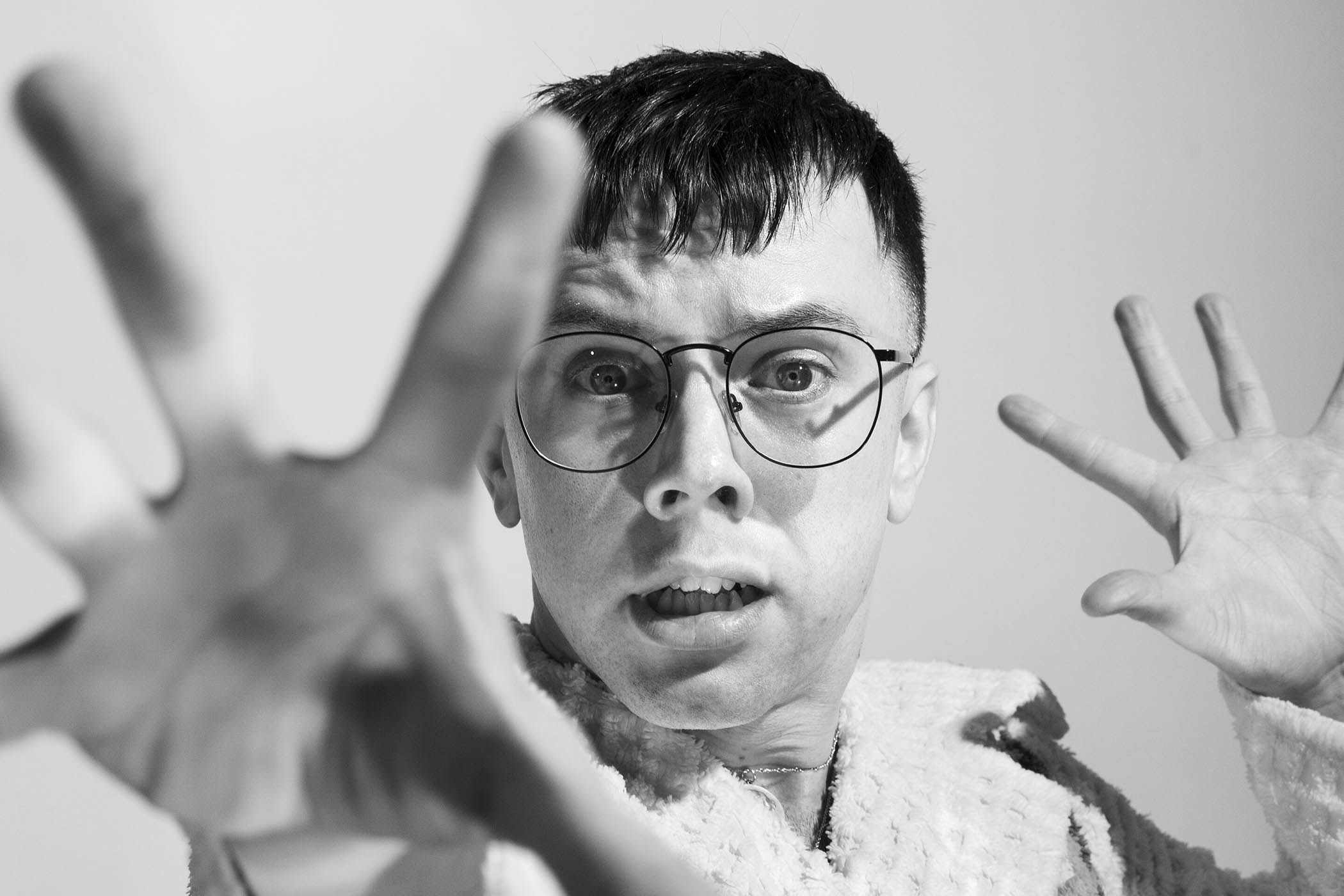Anyone interested in acting will want to see Nicola Walker on stage. At first, it seems unlikely that that she can replicate in a large theatrical space the sense she has created on screen – in The Split and Unforgotten – of a tamped-down swirling inner life. Yet she has proved it possible, not least when, acting opposite Mark Strong in Ivo van Hove’s 2014 version of A View from the Bridge, she pulled off a performance of glowering authenticity. Now she triumphs again in Nick Payne’s new play, with an extraordinary evocation of entrenched sorrow and feral anxiety.
The Unbelievers is a study of how catastrophe alters character. A 16-year-old boy goes missing: he might have been abducted, or run away. After six years, there is no trace of him. Payne’s interest is not in resolving the mystery, or in injecting a thriller element, but in examining the effect the disappearance has on those who are close to him. His mother, Miriam, played by Walker, has a child by her former husband, as well as a girl with the boy’s father, who now has another partner.
All are changed to some degree as the search for the boy stalls in a jumble of disappointments: the police find no conclusive evidence; appeals result in false, sometimes malicious, leads. Miriam is transformed. She breaks down in the supermarket and swears at the leaf-blower man. Most radically, her experience of time is altered. She is transfixed: unfortunately, so is Payne’s play.
The theatre – where audiences and actors are trapped together in the same hours – is the perfect place in which to dismantle notions about time. Payne has long been fascinated by this high-risk procedure. Constellations, the play that made him a star 13 years ago (also at the Court, but Upstairs) brilliantly interwove a love story with scientific theories about time. Constantly unpicking itself, it provided alternative endings for each of its episodes.
The scenes in The Unbelievers slither between past and present – from the moment the boy goes missing to one year and six years later – without clear demarcations of scene change or lighting. You often don’t know when you are, caught in that weird stretching and squeezing of time that often occurs after bereavement – and was a common experience during the Covid lockdown.
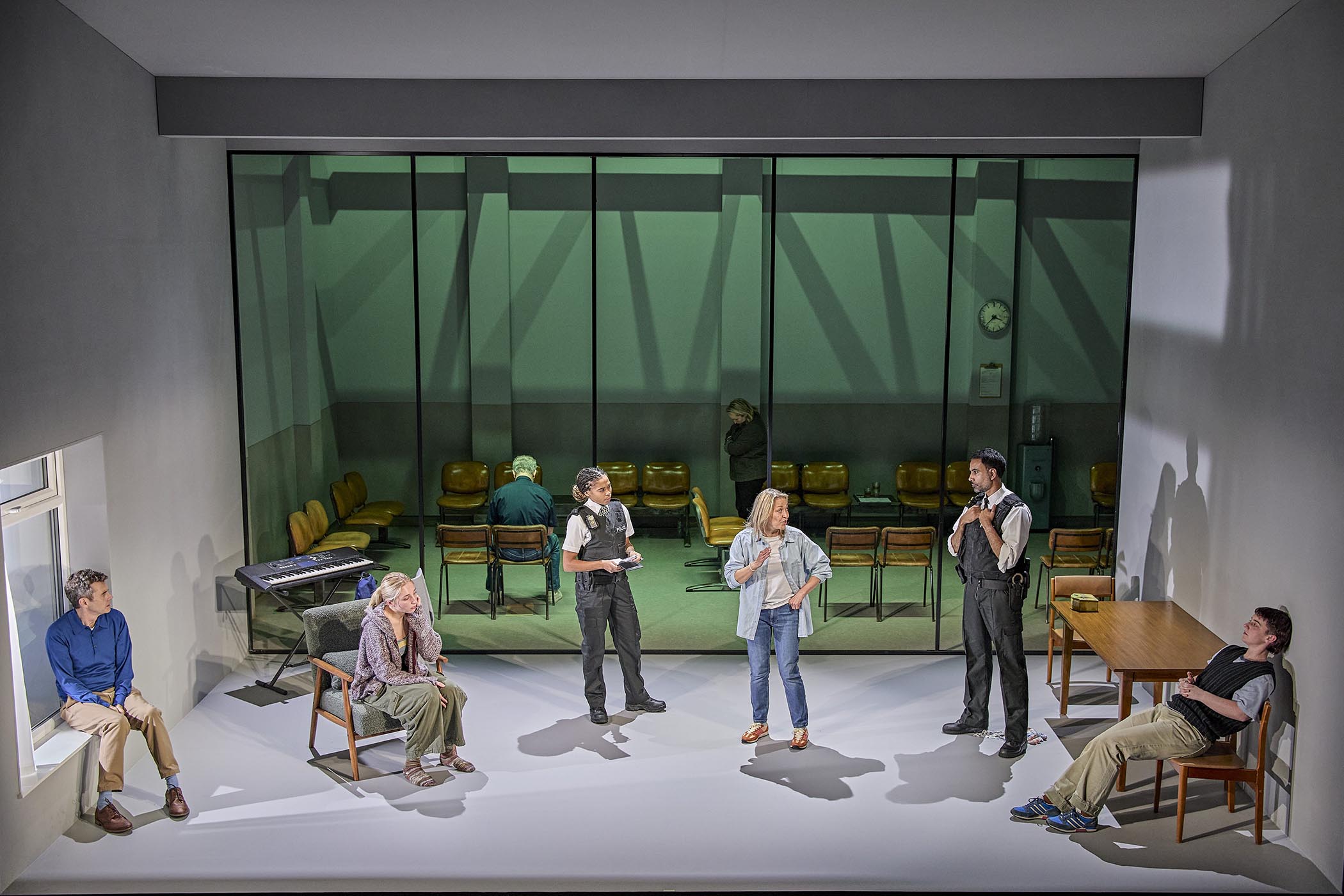
‘Cast members sit behind a glass wall like a perpetual frieze’: the cast of The Unbelievers at the Royal Court
Director Marianne Elliott’s production – incisive but woozy – perfectly captures the sense of arrested motion, graphically demonstrated by Bunny Christie’s design. The action takes place on the same unchanging domestic scene: table and chairs with a faint wash of marine blue-green from Jack Knowles’s unsettling but not too eerie lighting. Those cast members not in a scene sit behind a glass wall at the back – often slightly slumped, occasionally limply moving, as if underwater – like a perpetual frieze.
Here are exact images of a stuck inner landscape. Too exact: Payne’s structure does not allow urgent propulsion; the evening is a series of eddies, some exquisite, some with a whiff of exercise. There are unexpected comic breakouts in the shape of visiting gargoyle characters and some acute brushes with different believers in the supernatural: a desperate seance provides a scene of excruciating tension; Walker’s first husband, an ex-drunk turned vicar, when asked if masturbation is a sin, declares: “Scripture-wise, off the top of my head, I would say you’re probably good to go.”
Still, the real unbelievers of the title are those who no longer think the boy will come back: his father is stricken (Paul Higgins quivers so much he looks as if he will shake himself into fragments) but wants to hold a vigil and move on. Walker’s faith – there is a Last Supper touch in a late scene – is that her son lives.
Walker makes the belief credible, swerving between spectacular violence and spectacular withdrawal. A hug turns into a death squeeze. She becomes wildly vibrant when conjuring images of her son; she makes herself look stagnant with sadness. A trio of younger actors bring particular vividness to the stage. As siblings, Ella Lily Hyland (from Netflix’s Black Doves) and Alby Baldwin (Harry Potter and the Cursed Child) illuminate their crisply written characters with sauntering confidence, which looks sometimes like gracefulness, sometimes like slouching.
Isabel Adomakoh Young brings to two smaller parts the perfect focus she gave to Horatio three years ago at Bristol Old Vic. At the moment it is Walker packing out the stalls; in a few years – providing the theatre does not lose them to the screen – these three will be doing the same.
The Unbelievers is at Jerwood Theatre Downstairs, Royal Court, until 29 November
Photographs by Brinkhoff/Moegenburg
Newsletters
Choose the newsletters you want to receive
View more
For information about how The Observer protects your data, read our Privacy Policy
